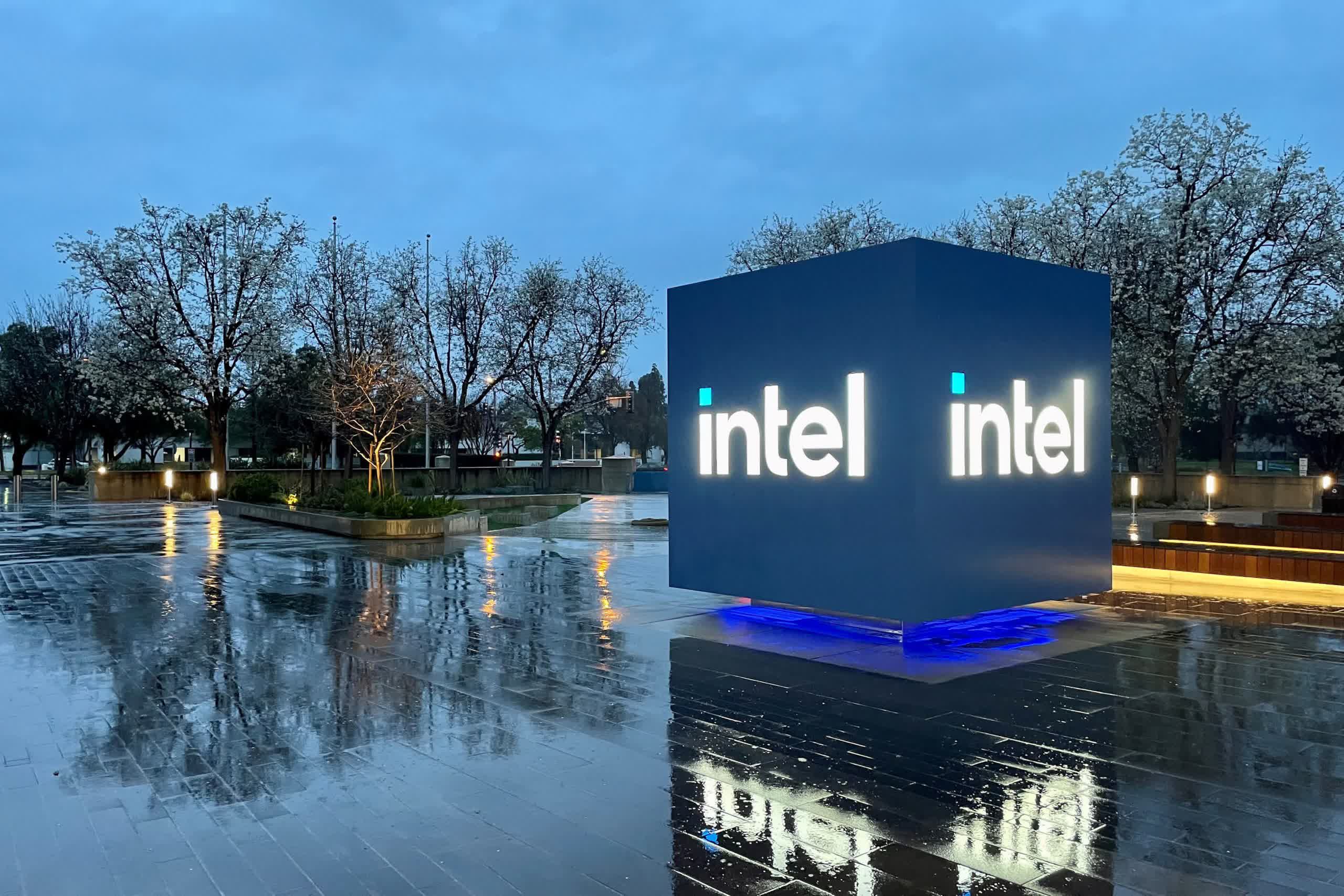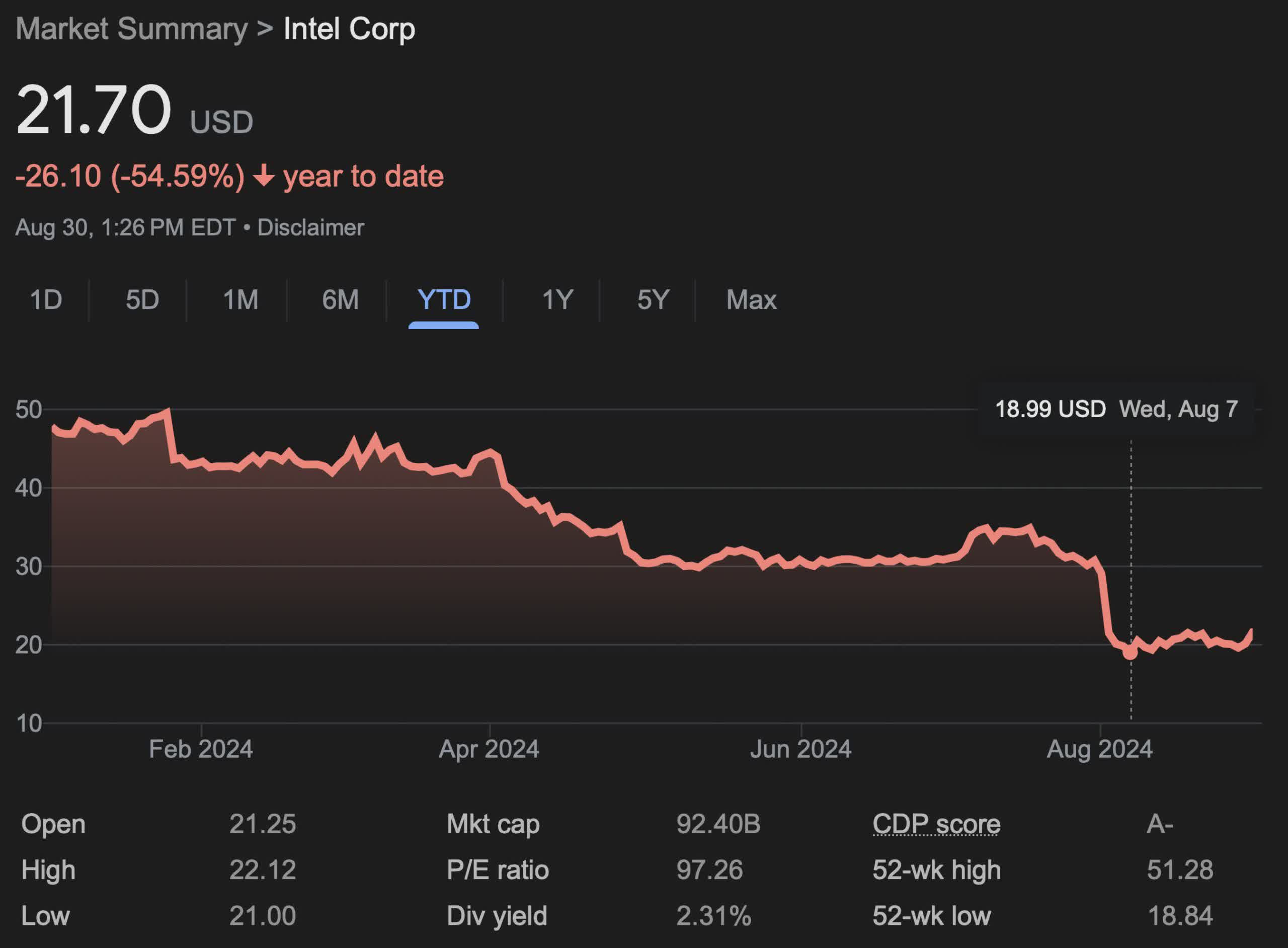In a nutshell: Intel is actively seeking advice from investment bankers after a recent troubling earnings report. The company is having difficulty navigating what insiders say is the most challenging time in Intel's 56-year history. Company heads are considering options, which include potentially separating its product design and manufacturing divisions.

Intel is in the early stages of talks with its longtime financial advisors, Morgan Stanley and Goldman Sachs Group. Everything seems to be on the table, including cuts to capital expenditures and canceling some factory projects. The company is even looking into mergers and acquisitions.
The crisis came after a shameful earnings report earlier this month that sent Intel stock tumbling to its lowest point since 2013. Shares were briefly surging, up 6.5 percent earlier this year, but plummeted 60 percent since then. It was a hard pill to swallow for shareholders, considering that the industry benchmark, the Philadelphia Semiconductor Index, had gained 20 percent at the time of the report.
Intel posted a net loss of $1.61 billion in the last quarter. Analysts predict more shortfalls are to come before year's end. Asymmetric Advisors Market Strategist Amir Anvarzadeh told Bloomberg that Intel's business model is "effectively broken." He expects substantial capital expenditure cuts over the next 12 months.
Also read: Intel's rough quarter was expected, but management's messaging struggles were not

"Expect big capex cuts from Intel over the next 12 months," said Anvarzadeh. "Intel's model is effectively broken. It's fighting fires on too many fronts."
The company will formulate a plan in the next few weeks and present it to its board of directors before the end of September. Deciding to split its design and manufacturing arms will take the wind out of CEO Pat Gelsinger's sails to see the company as a leading competitor to mega chip manufacturer TSMC.
Gelsinger returned to Intel in 2021, promising to revive the company to its former glory, putting him under intense pressure to deliver. He planned to expand the company's manufacturing footprint, but declining sales hampered progress. Intel recently announced it intends to cut around 15,000 jobs. It also wants to cut spending and suspend dividends, which will not likely please shareholders.
Adding to Intel's troubles, director Lip-Bu Tan, a crucial member of the company's turnaround efforts, stepped down last week. His resignation further complicates the company's efforts at a comeback. With Intel now kicked out of the top 10 largest chipmakers by market value and facing stiff competition from rivals like Nvidia, the road ahead for Gelsinger and his team looks increasingly shaky.
Gelsinger's plans to make manufacturing a cornerstone of Intel's comeback strategy are likely dashed. At the very least, the company will relegate them to the back burner in favor of a more conservative approach.